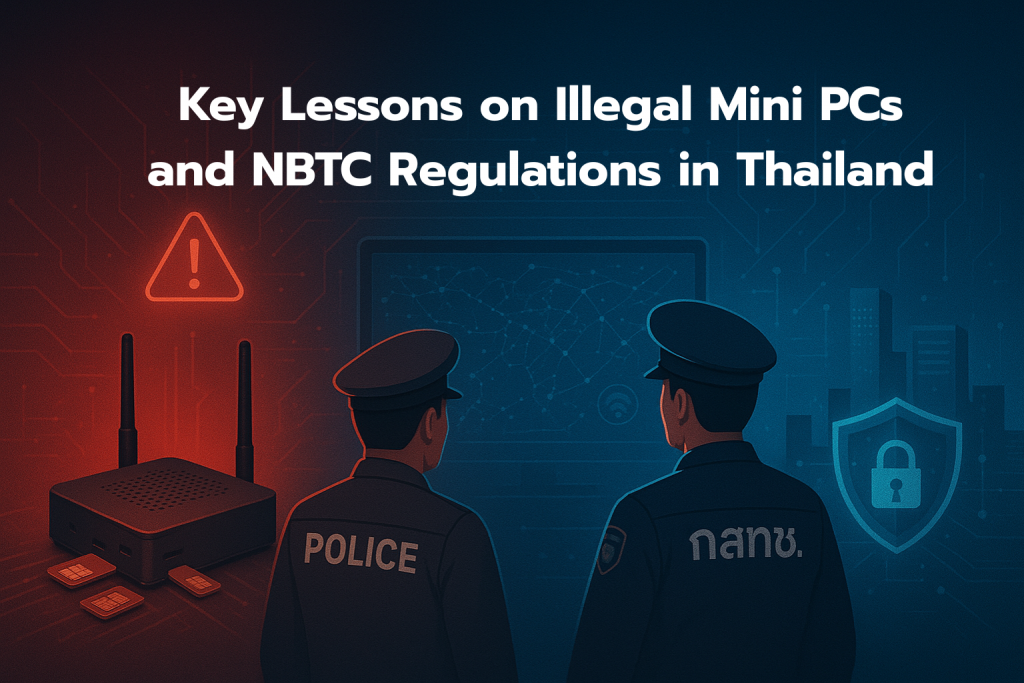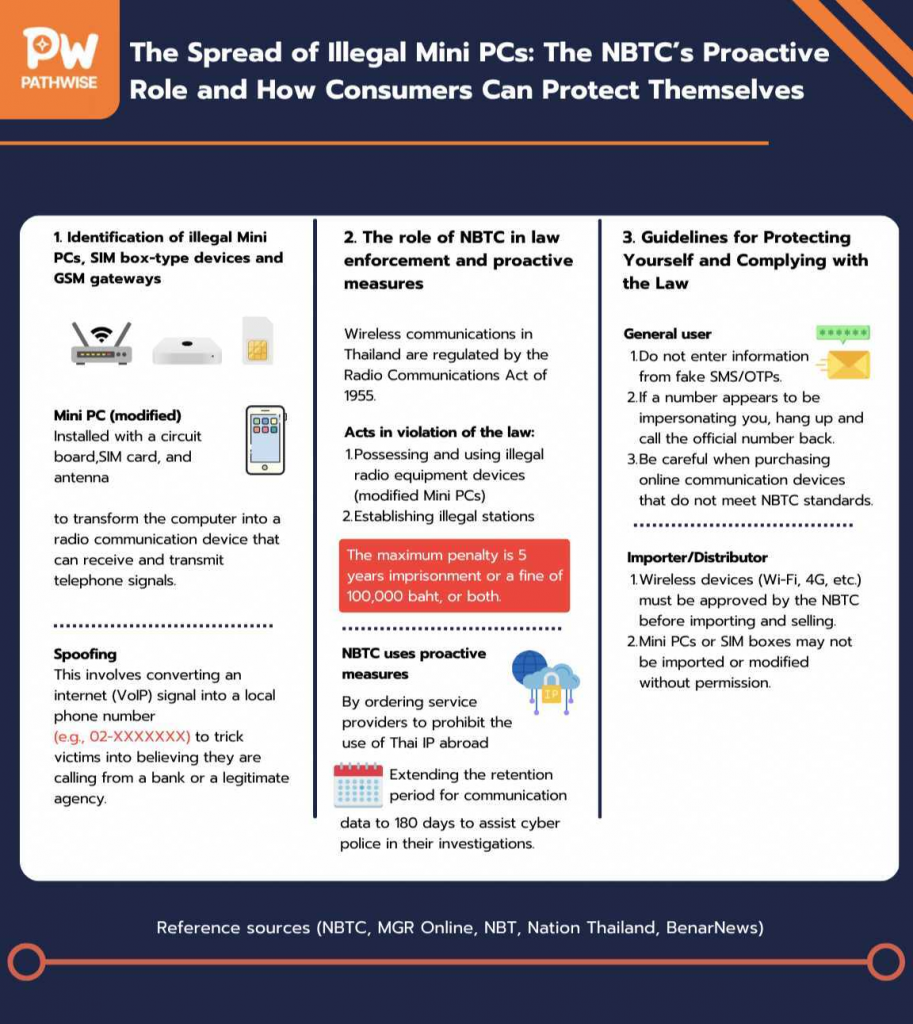
On 6 October 2025, the news of a call center gang using over 130 modified Mini PCs as illegal “stations” in the Prawet district caught national attention. This case is more than a criminal crackdown. It highlights important legal and technological knowledge that everyone should be aware of to protect themselves and avoid unintentionally breaking the law.
This article summarizes key points from the news and offers guidance on how to stay safe while complying with the law.
1. How Mini PCs Became a “Illegal Tool”
The seized Mini PCs, often in the form of SIM Boxes or GSM Gateways, were central to the gang’s operations. They work through complex mechanisms:
- Modified Mini PCs: These devices were equipped with circuit boards, SIM cards, and antennas, turning ordinary computers into telecommunication devices capable of sending and receiving phone signals.
- Caller ID Spoofing: The system converts incoming VoIP signals into local phone numbers (e.g., 02-XXXXXXX). Victims see familiar numbers, often appearing to be from banks or trusted organizations, making them easier to deceive.
Because of this, the NBTC (National Broadcasting and Telecommunications Commission) classifies these devices as illegal telecommunications equipment, technically uncertified and often used for illegal schemes.
2. The Role of NBTC: Law Enforcement and Proactive Measures
This case underscores that all wireless communications activities in Thailand are governed by the Radio Communications Act of 1955 (B.E. 2498).
Criminal offenses for offenders:
- Unauthorized possession or use of telecommunications equipment: Any device modified to transmit signals (including Mini PCs) is illegal.
- Operating an unlicensed telecommunications station: Installing multiple illegal devices in a building to transmit signals constitutes setting up an illegal station.
Penalties: Offenders may face up to 5 years in prison, a fine of up to 100,000 THB, or both.
NBTC proactive measures:
Beyond enforcement actions, NBTC uses technical measures to prevent recurring crimes, focusing on network control:
- IP Address control: Telecom providers are prohibited from using Thai-registered IP addresses abroad, cutting off spoofing opportunities for gangs near the border.
- Extended data retention: Communication data is now retained for 180 days to give cyber police sufficient time to investigate and track transnational gangs.
3. How to Protect Yourself and Avoid Legal Trouble
For general users (prevent being scammed):
- Never provide personal info from suspicious SMS/OTP: Messages asking for personal data or urging urgent clicks may come from signals transmitted via illegal devices.
- Verify official phone numbers: If a strange number claims to be from a bank or government agency, hang up and call the official call center instead.
- Be cautious with online purchases: Avoid buying communication devices (4G cameras, routers, Wi-Fi devices) from unverified sellers, as uncertified equipment may be seized or interfere with networks.
For importers or sellers (avoid legal violations):
- All wireless devices require a license: Devices with wireless modules (Wi-Fi, 4G, Bluetooth, RFID) must be certified and licensed by NBTC before import or sale in Thailand.
- Mini PCs/SIM Boxes are considered hazardous: Importing, modifying, or using these devices for large-scale phone or internet connections without permission is strictly prohibited.

References
Thai Sources:
English Sources:
